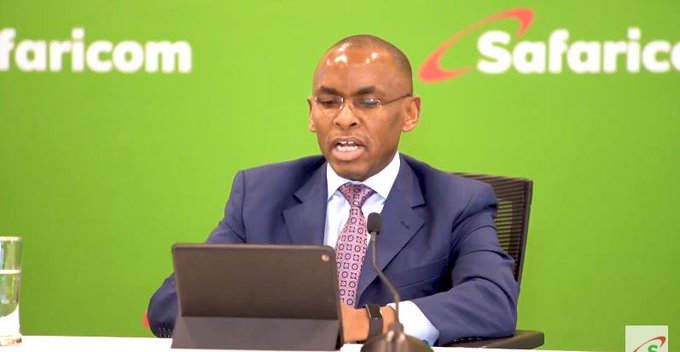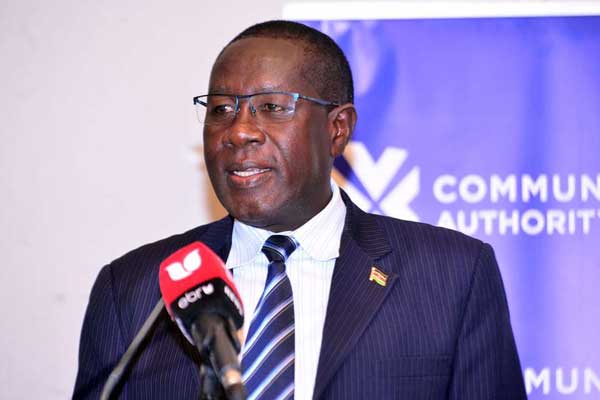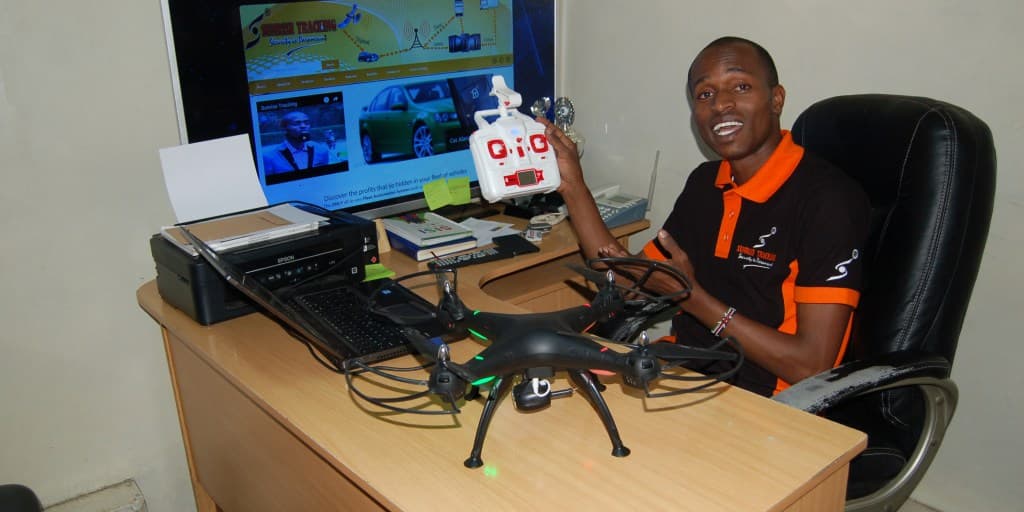
September 26th 2021: Safaricom Plc moves on to implement an M-PESA Bill Manager for Businesses that is a copy-paste of Kibo Capital Group Limited PaymentGate system registered at the Kenya Industrial Property Insitute (KIPI)
May 15th 2020: Safaricom goes ahead and implements #Tuwaanike, a new extra security feature that alerts you via SMS whenever someone tries to register a line using your National ID to stop rising M-PESA fraud. This is 8 months after Tech Guru by the name Anyona Obutu had submitted the idea on Safaricom’s Zindua portal and a month after he made his innovation public. Safaricom says they don’t know him. Ripped off.
Zindua portal which has many complaints of copyright infringement is shut down permanently.
Many other cases of Intellectual Property (IP) theft in Kenya are highlighted in links below:
- Abuse Of Dominance By Notorious Telco Safaricom Through Zindua Cafe
- Safaricom stole our idea to roll out M-Shwari, Faulu Kenya says
- Man Seeks Equity Bank Support To Sue Safaricom for “Stealing” Mpesa 1 Tap Idea
- Banks sucked into Sh1bn PesaLink patent row
- Pesalink Scandal: Highly Overrated Slayqueen Agnes Gathaiya Steals Another Idea
- Safaricom accused of stealing a patented idea
- PesaLink Runs Into Another Copyright Infringement
- Safaricom Accused Of Stealing Reverse Call Feature Idea Pitched To Them In 2010
- How Safaricom Stole ‘Thibitisha’ Idea From Innovator Through Zindua Cafe Programme
- Man sues Equity Bank over Sh10 million song
The article below is by the Intellectual Property Watch (IP WATCH), a leading independent news on global policy and trends on IP, innovation and creativity. IP Watch is a non-profit that has hired accredited journalists.
The article is titled, ‘Amid Allegations Of IP Theft By Corporations, Local Kenyan Innovators React’, was written by Fredrick Nzwili and published on IP Watch’s website on 10/06/2016
NAIROBI, Kenya – As start-up and innovation centres spring up across Africa, Kenya – which birthed the continent’s tech movement – is emerging as one of its leading innovation nuclei. But concerns are intensifying here that young inventors are losing their innovations to conglomerates, in what is alleged as intellectual property theft or abuse.
Recently, a red flag has been raised here after it became evident that big companies had arrived as “sponsors’, but ended up swindling young innovators. The companies have been entered into partnerships with the innovations, but many have found themselves at a loss once the products are fully developed, according to officials, IP experts and some innovators.
The companies have allegedly stolen the inventions, exploiting gaps in IP laws, the innovators’ lack of information and financial abilities.
“Loss of innovations to the companies is real in this country. There is generally little information available on how innovators can protect their inventions,” said Kelvin Macharia, an innovator at the University of Nairobi.
There has also been a lot of trickery from the bigger companies – local Kenyan innovator
“There has also been a lot of trickery from the bigger companies, which may have offered funding for the inventions, but turn against the inventor. Many of them are poor bright young people who hope to make a livelihood out of the hard earned inventions,” adds Macharia.

According to Macharia, the company may, for example, push for joint patent registration and offer a shares of the company stocks, but as the lengthy paper-work begins, it may alter a small detail in invention and claim it as its original own.
“We have also cases where the innovations are stolen and improved, then introduced into the market. Many innovators lack the capacity follow through in courts since the cost in prohibitive,” said Macharia.
This is viewed as crucial for East Africa’s economic powerhouse, whose capital Nairobi is basking in the popular name of ‘Africa’s Silicon Savannah’. This grew out the fact that it was reportedly the centre of Africa’s early tech innovations from 2007, when inventions such as Mpesa and Ushahidi emerged.
Mpesa is the world most successful mobile phone money transfer service while Ushahidi is an organisation that uses crowdsourcing for social activism and public accountability. Ushahidi (witnesses in Swahili) created a platform that collected witness accounts and placed them on google maps, in the aftermath Kenya’s 2007-2008 post-election.

Partnering with ITU on IP
The problem has prompted Kenya to take steps such as to partner with United Nations International Telecommunication Union (ITU) to strengthen the protection of local intellectual property in the country, according to a top Kenyan official.
The ITU will use Kenya as test bed to study how to protect innovators from intellectual property abuses, Francis Wangusi, the director general of the Communication Authority of Kenya (CA) explained to journalists in mid-May in Nairobi. The findings of the study will be disseminated across the world.
“Most of those multinationals who happen to talk to our innovators after having taken them for exposition, attract them to partnerships that don’t work, especially when they realise they have not patented their products,” said Wangusi.
“We have seen and heard cases across the world, and even Kenya is one of the examples … and therefore (the companies) make the innovators lose the value they would get.”
The official said Kenya, fearing that the problem might stagnate the rate of innovation in the country, decided to raise it at an ITU forum.
Still, some giant organisations with investments in the country may also be using the intellectual property rights of young innovators to make money and are not paying for them, warned Wangusi. He cited complaints by musicians that they were being exploited by mobile phone service providers after the use of their music as ringtones.
“The payback is almost zero. They need this kind of protection,” said the official.
For Fredrick Omukubi Otswong’o, director and patent agent at Nairobi-based Random Forks Intellectual Property Group (RFIP), IP abuses are a commonplace across the world.
“The owner of intellectual property rights is usually his own policeman. This process is very costly since it involves an investigation and litigation, and is only applicable to legitimate holders of IPRs certificates such as patent, trademark, copyright or industrial designs,” he said.
Jacob Kioko, a marketer, innovator and copyright owner, agreed that Kenya’s innovators are left alone and no one stands or speaks for them.
“In such a scenario, innovations can easily be stolen, and piracy or theft of IP is the worst that can happen to an innovator,” said Kioko.
A Society of Innovators Left on Their Own
According to Kioko, the Kenyan constitution mandates the state to support and protect innovators and their innovations, but this does not happen.
“With nobody standing or supporting these groups, it is easy for an innovator to go down into the grave with useful inventions,” he warned.
At the same time, Otswong’o explained that while presently most innovations are ICT and software related, in most African countries, software or computer programs are not patentable.
“It is their functionality within a system can be patented as is the case in USA and parts of EU,” he said.
In Kenya, according to Otswong’o, very few innovators use IP regimes to protect their novel innovations. This is due to either lack of awareness or capacity to draft patent description and prepare IP applications that will pass the test of formal requirements in IP offices.

Photo by Fredrick Nzwili
Yet, those who are aware of the IP regime turn a blind eye to it either because of limited funds or because they want quick cash thus exposing themselves to ‘international IP predators’, according to the expert.
“I have come across innovators who are offered short-term contract jobs with multinationals only to realise that they were duped a few months down the line,” said Otswong’o.
The expert is of the view that ITU should not only take an inventory of ICT-related innovations but also enhance awareness creation on the importance of IP regimes in protecting new ideas, innovation, invention and creativity.
The ITU press office in Geneva declined to comment for this story or confirm this partnership.
[Editor’s Note: It is unclear why ITU’s Geneva neighbour the World Intellectual Property Organization is not the one supporting local innovators’ efforts to build capacity and awareness. WIPO claims a mandate of building awareness of the IP system in countries.]
ITU will conduct a pilot study in Kenya, whose findings will be disseminated worldwide. It will be a basis for global protection of innovations. It will partner with Communication Authority of Kenya in the exercise, according to the CA head.
When the work begins, Kenya will be looking at a broad spectrum of innovation-right from application to contents, according to Wangusi.
In the process, the search will go beyond Kenya’s boundaries to seek to protect of any intellectual property that has originated from this country and which they can tumble on.
Extras:
Anyona Obutu
8 months after I submitted the idea to Zindua portal (now dead) and a month after publicly releasing the designs, the feature is finally out.
Well done.
Do I collect my cheque from HQ1 or HQ2?
Ama tuma tu kwa mpesa, in multiples of 1000/-. its free https://t.co/ky5nYYHSLp
— Anyona Obutu (@obutuz) May 15, 2020




